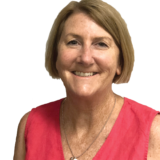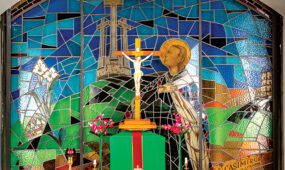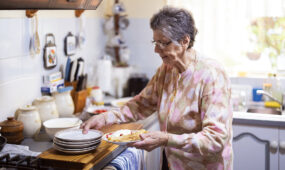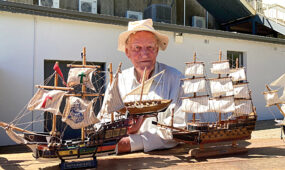Forced marriages going unchecked
Local
Forced marriage and slavery-like practices are going unchecked in South Australia because social services, school teachers, health professionals and other frontline workers do not recognise this form of human trafficking, according to a Flinders University criminologist.

Last month Flinders University partnered with ACRATH (Australian Catholic Religious Against Trafficking in Humans) to deliver an education and interactive training webinar session.
Hosted by the Adelaide Archdiocese, the webinar was delivered by ACRATH forced marriage expert Liz Payne and human trafficking expert Marilynn Ross from the AFP for about 40 participants from a range of professions.
During the 2019/20 financial year, the Australian Federal Police received 92 reports of forced marriage, with just over half of these relating to victims under the age of 18 years.
Advertisement
According to the AFP, 70 per cent of the reports alleged that victims were taken offshore or the intent was for them to travel offshore for the purpose of forced marriage. The most vulnerable group seen by the AFP during this period was young females between the ages of 15 and 19 years.
Flinders University criminology lecturer Associate Professor Marinella Marmo said she feared the few cases identified are just the tip of the iceberg.
“Federal figures indicate forced marriage is the highest form of slavery-like practice in comparison to any other form of human trafficking for the past few years in South Australia,” she said.
Between 2009 and 2019, 13 cases of forced marriage were referred by the AFP to the Support for Trafficked People Program, or one per 243,000 inhabitants in SA, which Associate Professor Marmo said reinforced the need for action.
“On a per capita basis, this means that SA comes second after Victoria in number of cases,” she said.
“In most of these cases, the alarm bell was raised by or via the victims’ school network.
Advertisement
“In general, forced marriage victims fail to be identified in rural and metropolitan South Australia because we lack a proper awareness-raising and education approach, distinct from family violence and child protection.
“If the SA Government does not take clear action at state level, there will be more cases unidentified or misidentified.”
Associate Professor Marmo said forced marriage cases were very complex, had interconnected vulnerabilities and multiple safety risks.
“The consequence of a misidentification is that a forced marriage victim is negated access to the 200 days of forced marriage support in the Support for Trafficked People Program,” she said.
The training webinar provided an overview of the Australian legislation, ways to identify behaviour and indicators of those at risk and referral and support pathways.
Participants included educators, health care and child protection professionals, community workers and other frontline responders.
For more information and training resources, visit www.acrath.org.au.








Comments
Show comments Hide comments